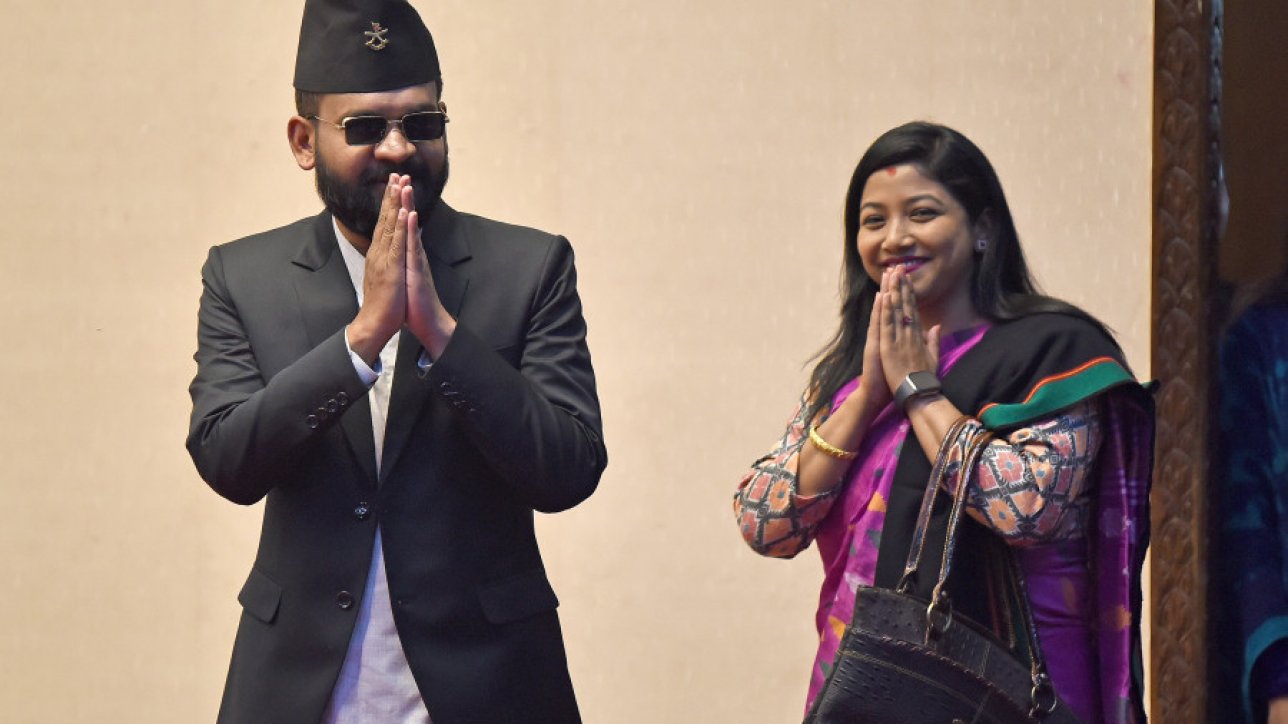Many surprises emerge in every nation’s history, and events can rarely be predicted during their course; people cannot say what change may happen in the next two to three years. If we think of 1988 or 1989, who would have thought that the people of Nepal would challenge the monarchy ruling under a partyless Panchayat system and move to a constitutional monarchy? Similarly, when we think of 2004 or 2005, who would have believed that a monarchy that ruled for 240 years would see an end? Like in many other countries, events in Nepal happen without the people expecting them. Whenever we feel we have lost hope, whether during the insurgency, an economic crisis or natural calamity, we spring back; we manage to spring surprises, and then another trajectory emerges.
The local elections in 2022 have been another event that will change Nepal’s future. They are a slap in the face of all the people who have been saying that federalism is not going to work in Nepal. The megalomaniacs in Kathmandu, be it the political parties or bureaucrats, have been taken by surprise. The voice of the people in a democracy is the ultimate decision-maker. This election and the results have provided many different pointers that we need to take positively.
Bitter pill
First, the way the people voted to elect their leaders has disrupted the status quo. They voted for independents; they voted looking at the candidates’ competencies rather than their allegiance to the political parties. Many senior party leaders had to swallow the bitter pill of their party’s candidate losing in the wards they voted in. It could be voter frustration against the party leaders who have been doing little but fighting within the party and against other parties, not on ideological or significant issues, but on petty matters. In a country where 70 percent of the population is below the age of 40, the old male leaders have been given a wake-up call or maybe a suggestion that they should hang their hats.
The second is that this election indeed demonstrated the power of social media. Gone are the days when the candidates and parties used to make speeches and host dinners and parties to woo voters. They made all sorts of promises that they could never keep. Things have taken a different turn with social media platforms entering people’s lives. You have to have messages that people understand. You cannot just use false data and other means to bluff your voters. Accountability has moved to a different level. Every individual who has a smartphone is a source of news who can share videos on various platforms or provide opinions that can go viral. The old generation of leaders and leaders of so-called new movements who thought social media were platforms for sycophants to sing the praises and share their divine statements could not fathom how much the platforms had transformed.
Third, it is about managing expectations. In a recent study on local economic development conducted by Beed Management, it emerged that people wanted to link up local governments with economic transformation, be it the creation of jobs, providing access to markets for their produce, helping them in their entrepreneurial journey or seeing some major projects come to their neighbourhood. The mood was also that they were disillusioned by how the political parties functioned. People vehemently opposed the sudden transformation in the behaviour of the political parties, becoming their ally when for years they remained aloof. Younger folks and women did not like this at all. Many of the candidates who won by surprise perhaps knew this gap and addressed it well with the voters.
Finally, all eyes are on Kathmandu not only because Balen Shah created an upset but with more details emerging from his planning process, it has provided hope to many aspiring leaders in Nepal. He has his work carved out, but in terms of basics—cleanliness, garbage management, misuse of building permits and getting rid of shabby structures—what he will be able to do in Kathmandu will hopefully be replicated across Nepal. There are just two things that can be taken as pointers.
It has given hope to many young Nepalis that one can fight an election and win it if you have the right strategy and work hard. One does not need to affiliate with any party. Like in the case of Sunita Dangol, the party found her, but it is very clear that she could have won irrespective of the political party. So hopefully, during the upcoming federal elections, we will see new aspirants who will dent the hopes of status quo propagators. The top leaders will see some able contenders, and perhaps an excellent time to make retirement plans!
Independent leaders
It would be a good starting point if the independent leaders could form a coalition with others and take on one issue to deal with, be it garbage or aesthetics. It is good that Balen Shah did away with khadas and one did not see him painted red. A start to ensuring a pleasing aesthetics of oneself. It is so difficult to believe that people who allow their faces to be painted ugly red and accept the wasteful tradition of khadas and garlands will actually keep the streets clean!
There is a rekindling of hope. We have more educated people than ever before, and people with more money than their ancestors could have ever dreamt of. So we need to work on small things that ensure a sense of civility, inculcate civic sense and lead by example.
Read the article on The Kathmandu Post: https://tkpo.st/3wZnPPc

